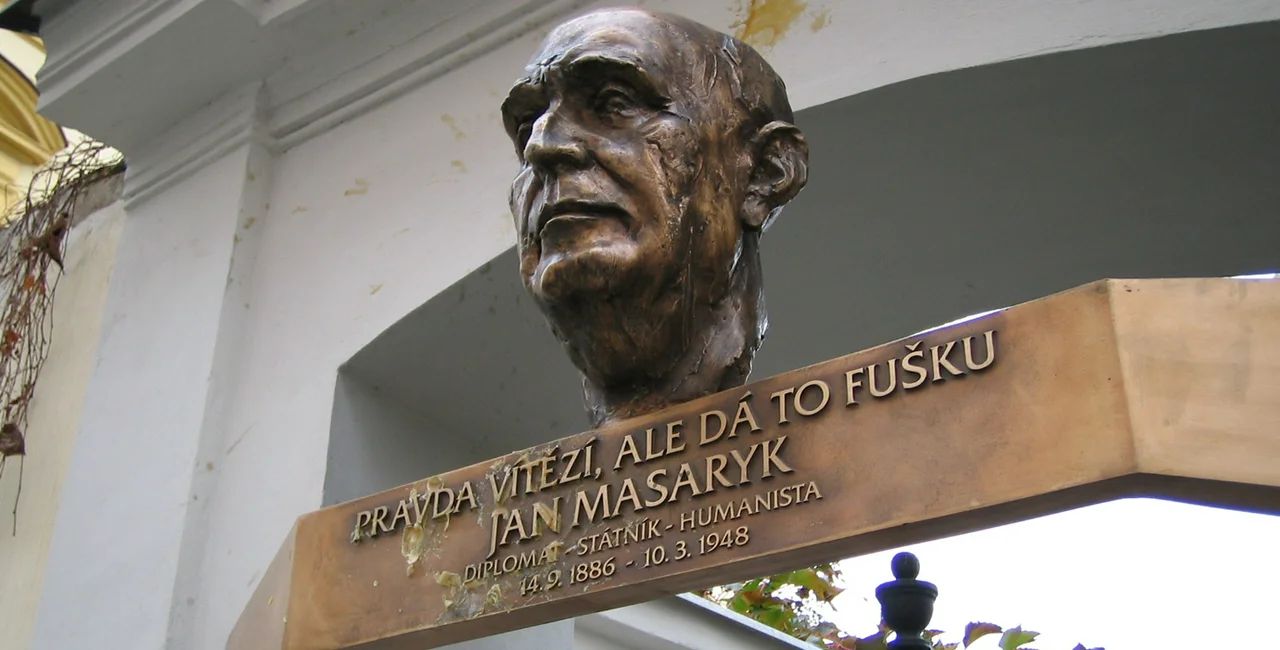Prague, Oct 30 (CTK) – State attorney Michal Muravsky has tasked the police to reopen the investigation into the death of Jan Masaryk, a Czechoslovak foreign minister who died under unclear circumstances on March 10, 1948, shortly after the communist coup, daily Pravo writes today, citing Muravsky.
Muravsky, from the Prague Municipal State Attorney’s Office, had the case reopened with regard to a recently uncovered audio recording with the testimony of the police officer who was the first to see Masaryk’s dead body.
PARTNER ARTICLE
The latest conclusion about the case, made by the police Office for the Documentation and Investigation of the Crimes of Communism (UDV) in 2003, is that Jan Masaryk did not commit suicide by jumping out of a window but was murdered, while there is no chance of tracking down the perpetrator.
At Muravsky’s request, the UDV will start a new investigation now.
Muravsky told Pravo that by his step, he is reacting to the allegedly new piece of information concerning the circumstances of Masaryk’s death.
He was referring to the newly released testimony of the late police Vilibald Hofmann, who was among the first people to see Masaryk’s corpse lying on the courtyard of the Cernin Palace in Prague, which is the Foreign Ministry’s seat.
In the audio recording from early 1968, Hofmann says Masaryk’s dead body was manipulated and then returned to its original place for photographing, but in a position different from the original, Pravo writes.
The recording with Hofmann’s testimony was highlighted by researcher Vaclava Jandeckova in a debate on Czech Radio earlier this month.
“Vilibald Hofmann was sent to the Cernin Palace as the first police officer on March 10, 1948 in the morning. His task was to seal the entrances and the scene of the death,” Jandeckova said.
In his testimony, Hofmann said the photo of Masaryk’s body, which is a part of the criminal file, does not correspond to the original situation and shows the corpse in a changed position.
Jan Masaryk, a son of the first Czechoslovak president Tomas Garrigue Masaryk and the only democratic minister to stay in the Czechoslovak government after the communist coup of February 25, 1948, was found dead, at the age of 61, in the palace courtyard on March 10 in the morning, his body having fallen down from the window of the bathroom in his apartment situated on the second floor.
There are three theories explaining his death. The original one, with which the police closed the case shortly after Masaryk’s death and also after a renewed enquiry in 1969, says it was an unfortunate accident where Masaryk slipped on the window ledge and he fell down. The police then failed to find out whether Masaryk was escaping from someone.
A next enquiry, launched in 1995, after the fall of communism, came to the conclusion that Masaryk committed forced-upon suicide, which means that an unknown person directly or indirectly made him jump out of the window. An unlawful home search scared Masaryk and led to his death, the investigators said.
The third theory, with which experts came up in 2003, speaks about the murder of Masaryk, who was thrown or pushed out of the window by an unknown perpetrator.
Another enquiry started in 2016, but ended inconclusively.
The question is whether the reopening of the case may bring any new conclusions. It is unlikely to change the police’s opinion that Masaryk’s death was a murder, and it will hardly help uncover the perpetrator now that 71 years have elapsed since the crime, Pravo writes.












 Reading time: 3 minutes
Reading time: 3 minutes 



























